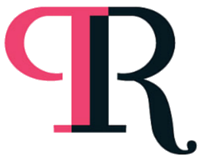
In any given week, I attend anywhere between 30-40 meetings. I engage with my mentees, students, clients, staff, and peers, all while balancing quite a heavy workload. The only way I’ve been able to get it to all flow together seamlessly is through efficiency, over preparedness, and by being exceptionally meticulous with my time.
After brief pleasantries, I like to adhere to the meeting agenda and get right to the point. Due to this, it becomes easy for me to notice when someone isn’t on their shit. So much so that during a recent encounter, this quickly became evident, causing me to abruptly stop the meeting and reschedule.
There’s a reason why so many seasoned executives aren’t overly generous with their time — some people waste it. While it may not always be intentional, here are a few simple tips to help you keep their attention and interest while getting your desired results:
The text below is from one of my mentors.
Truth be told, there are very few people who wouldn’t pick up my call because whenever I request someone’s time, two goals are achieved:
1) I reduce stress and or;
2) add value
I encourage you to request mentor chats and informational interviews with industry veterans across every stage of your journey. I did, and still do often. It’s an excellent way to gain a deeper understanding of any topic or issue you may be facing, while also helping you to leapfrog steps within your career.
In the early stages of my journey as a businesswoman, the one question I asked myself before any encounter was, “Am I the type of person that world-class leaders would want to invest in?” And I wasn’t just talking about money.
Details matter. The habits and patterns you illustrate to others matter. People are always paying close attention; deciding within seconds whether or not they want to engage with you, hire you, refer you to their network, and so on. It’s a harsh reality I wish more people understood.
In no particular order, here’s my advice below: (highlight/bold)
- Does this need to be a meeting or would a brief email suffice? Try to spare everyone’s calendars, if possible.
- If you need to proceed with a meeting, state the purpose in the body of your email. Be clear and concise.
- Rule of thumb: If you request the meeting, you send the calendar invite. Be clear on whether it’s a zoom or phone call, and always include an agenda. Most meetings can be 15-minutes, or maximum 30. Trust me, if you’re prepared, you can get a lot done in that time.
- Be on time. Some people will log off if they’re left to wait more than 2-3 minutes, crushing your chances of getting another meeting with them in the process.
- Unless strictly confidential and you intend to show it on screen, send any and all materials to be reviewed in advance. Personally, I like time to digest the information prior to the meeting so we can be on the same page and quickly get to the point once we meet.
- Research who you’re speaking with. One time someone booked a meeting with me to ask me a few questions about my career only for me to realize they’d not done their homework. I said, be fkn for real. Make an effort by listening to or reading media interviews, watching keynotes, scrolling their social media feed or simply tapping in with a mutual friend. Don’t ever go into a meeting blind. An easy way to avoid this is to create a one-sheet for yourself that summarizes their background. As I tell all my mentees, “know all the players on the board and prepare for any sudden pivots.”
- Leverage your research to prepare thoughtful and specific open ended questions that are aligned with the meeting’s objective. Do this, and you’ll make an amazing first impression.
- Be intentional and practice your introduction. I can’t tell you how many deals I’ve closed based on my ability to sell myself ALONE.
- Nothing annoys me more than when someone requests advice from me and they aren’t taking any notes, whether by pen to paper or recording the call. How are you going to remember all this knowledge I’m dropping? Why are we even here?
- Have a clear call to action, and don’t beat around the bush (I’ll provide a video at the end to expand on this).
- Again, based on your research and your ability to read between the lines, where can you add value? If you’re still unsure, ask. If they don’t have an immediate response, offer to keep the (figurative) door open.
- Most importantly, always circle back and send a thank you. Furthermore, send an email update about how you applied their advice and detail the results that were produced after the fact.
I’m sure you’re thinking to yourself, “Pauleanna, I know how to conduct myself in a meeting.” Nah, I promise you, most people do not.
When it’s said and done, you want to be a person someone can vouch for, and I’m telling you, anyone who’s in a powerful position is taking note of your habits and patterns.
TL;DR: Master the easy stuff.
